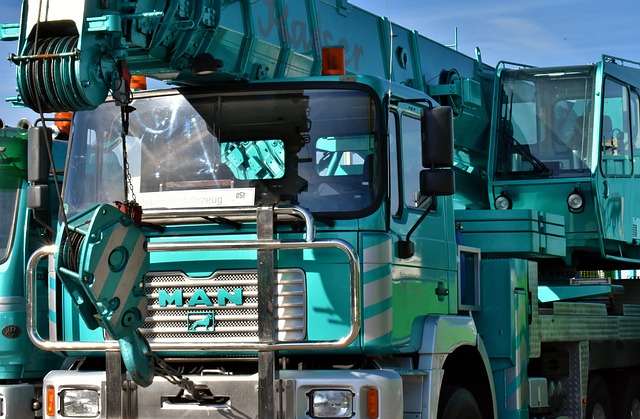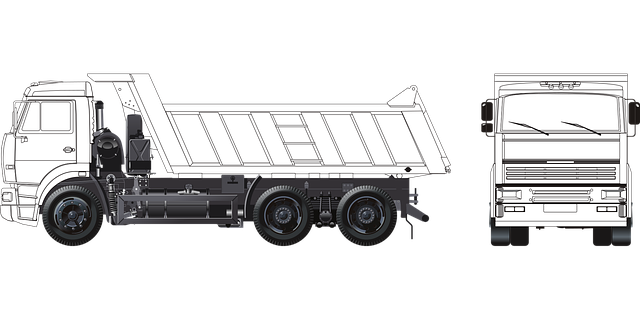New trucking businesses in the US must understand and obtain SR22 coverage, a specific insurance policy mandated for commercial vehicles. This coverage protects against financial losses from accidents or legal claims, ensuring compliance with legal obligations and promoting public safety. To navigate these requirements successfully, trucking operations should adopt proactive compliance strategies, stay informed about industry regulations, and foster a culture of adherence to SR22 standards.
In the dynamic landscape of trucking, staying ahead of legal and insurance obligations is paramount. With evolving regulations and a competitive market, operators must navigate complex requirements to maintain compliance and mitigate risks effectively. This article explores crucial aspects, including the advent of SR22 coverage as a new trucking mandate, the legal obligations shaping the industry, the pivotal role of insurance in ensuring adherence, and best practices for sustained compliance.
Understanding SR22 Coverage: A New Trucking Requirement

Trucking operations in the United States are facing a new requirement with the introduction of SR22 coverage. This type of insurance policy is designed to meet specific legal obligations for commercial truckers, ensuring they have adequate financial protection in case of accidents or claims. SR22 isn’t just another form of insurance; it’s a mandate set by federal laws to safeguard public safety and compensate victims of trucking incidents.
Understanding SR22 coverage is crucial for new truck drivers and businesses alike. This policy typically includes liability coverage, which pays for damages caused to others in an accident, as well as coverage for medical expenses of injured parties. By meeting this requirement, trucking companies demonstrate their commitment to compliance, thus avoiding potential legal repercussions and ensuring the safety of everyone on the road.
Navigating Legal Obligations for Trucking Businesses

Navigating Legal Obligations for Trucking Businesses involves understanding and adhering to a complex web of regulations designed to ensure safety, accountability, and fair business practices. One crucial aspect is obtaining proper insurance coverage, such as SR22, which is often mandated by states for commercial vehicles. New trucking businesses must be particularly diligent in this area, ensuring they meet all legal requirements before hitting the road.
SR22 coverage, specifically, is designed to protect both the driver and the business against potential liabilities arising from accidents or other incidents. It demonstrates compliance with financial responsibility laws and can help avoid hefty fines or legal repercussions. For new trucking operations, consulting with insurance experts and staying informed about regional regulations is essential to ensure every legal obligation is met, fostering a strong foundation for long-term success in the industry.
The Role of Insurance in Ensuring Compliance

In the world of trucking, ensuring compliance with legal and insurance obligations is paramount for operations to run smoothly. One critical component of this puzzle is SR22 coverage, which serves as a linchpin in both legal protection and operational continuity. This form of liability insurance is mandated for new trucking businesses or those seeking to operate on public roads, underscoring its importance in navigating the labyrinthine regulatory landscape.
SR22 coverage acts as a safety net, safeguarding against potential financial devastations arising from accidents, property damage, or legal claims. It’s not just about meeting regulatory requirements; it’s also about fostering trust among stakeholders, including customers and partners. By securing SR22 coverage, trucking companies demonstrate their commitment to upholding industry standards and ensuring the well-being of all parties involved, ultimately revolutionizing safety on the roads.
Best Practices for Maintaining Continuous Compliance

To ensure continuous compliance with legal and insurance obligations, especially in the dynamic landscape of new trucking operations, adopt a proactive approach. Regularly review and update your compliance strategies to align with evolving regulations, industry best practices, and risk management principles. Implement robust internal controls, such as dedicated compliance officers or committees, to monitor regulatory changes, particularly those related to SR22 coverage, which is crucial for commercial vehicles.
Stay informed about industry-specific insurance requirements and maintain open lines of communication with your insurance providers. Conduct periodic audits to assess your adherence to legal standards and identify potential gaps in coverage. Foster a culture of compliance within your organization by providing comprehensive training programs that educate employees on their responsibilities, the importance of SR22 coverage for new trucking businesses, and best practices for maintaining accurate records.
In conclusion, understanding and adhering to legal requirements, especially the implementation of SR22 coverage for trucking businesses, is paramount. By navigating these obligations effectively, leveraging insurance as a compliance tool, and adopting best practices, operators can ensure continuous adherence to regulations. This not only protects against financial risks but also fosters a safe and sustainable trucking industry. Embracing these measures is crucial for both individual operators and the broader transportation sector.
